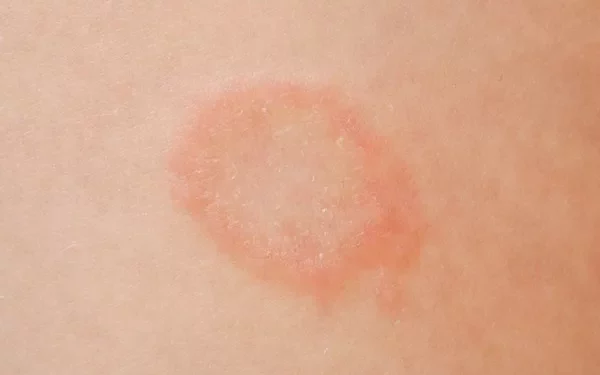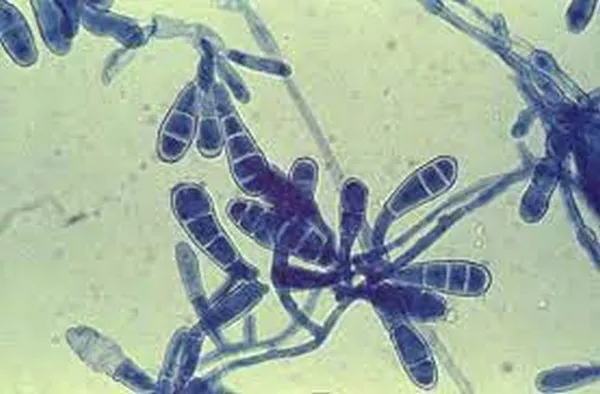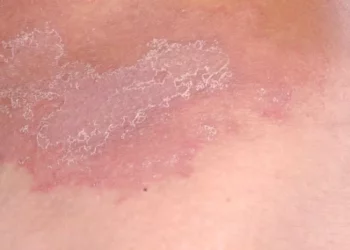Ringworm is a common fungal infection that affects the skin, scalp, and nails. Despite its name, it is not caused by worms but by fungi that thrive in warm, moist environments. The infection usually appears as a ring-shaped rash with a red, itchy border and a clear center. If you are dealing with ringworm, it is important to know how to treat it effectively. In this article, we will explore the best medicines to get rid of ringworm, how to use them, and the steps you can take to prevent reinfection.
What is Ringworm?
Ringworm, medically known as tinea, is caused by a group of fungi called dermatophytes. These fungi live on the dead tissues of the skin, hair, and nails. The infection can spread through direct contact with an infected person or animal, contaminated objects, or surfaces.
There are several types of ringworm, depending on the area of the body it affects:
Tinea corporis: Affects the body
Tinea cruris: Affects the groin area (often called “jock itch”)
Tinea pedis: Affects the feet (commonly known as “athlete’s foot”)
Tinea capitis: Affects the scalp
Tinea unguium: Affects the nails (also known as “onychomycosis”)
Regardless of the type, all forms of ringworm can be treated effectively with the right medicine.
Symptoms of Ringworm
Before we dive into the treatment options, it is important to recognize the symptoms of ringworm. Some of the common signs include:
- Circular, red, scaly patches with raised edges
- Itching and discomfort
- Blisters or pustules in some cases
- Hair loss in areas affected by ringworm of the scalp
- Thickened or discolored nails if affected by tinea unguium
If you notice any of these symptoms, it’s essential to start treatment as soon as possible to prevent the infection from spreading.
Over-the-Counter Antifungal Creams
One of the most common treatments for ringworm is the use of antifungal creams. These creams can be purchased without a prescription and are usually effective in treating mild cases of ringworm. Here are some of the most popular over-the-counter antifungal treatments:
Clotrimazole
Clotrimazole is an antifungal cream that works by stopping the growth of fungi. It is available in various forms, including creams, lotions, and powders. To treat ringworm, apply the cream directly to the affected area twice a day for at least two weeks. It is important to continue using the cream for a few days after the symptoms disappear to ensure the infection is fully eradicated.
Miconazole
Miconazole is another widely used antifungal treatment. It is available in both cream and powder form and can be applied to the skin affected by ringworm. Like clotrimazole, miconazole works by preventing the fungi from reproducing. Apply the cream once or twice a day, and continue for the recommended duration to ensure full recovery.
Terbinafine
Terbinafine is a strong antifungal that can be found in over-the-counter creams and gels. It is effective against a variety of fungal infections, including ringworm. Apply it directly to the affected area once or twice a day for up to two weeks. Terbinafine is often recommended for treating tinea corporis (ringworm of the body) and tinea pedis (athlete’s foot).
Tolnaftate
Tolnaftate is a topical antifungal medication available in creams, sprays, and powders. It is used to treat several types of fungal infections, including ringworm. Tolnaftate works by inhibiting the growth of the fungus. Apply it to the affected area once or twice a day for two weeks. It is important not to miss any doses to ensure the infection is completely treated.
Prescription Antifungal Medications
In some cases, over-the-counter treatments may not be sufficient to treat ringworm. If the infection is widespread, severe, or not improving with topical treatments, a doctor may prescribe oral antifungal medications. These medications are often more effective and faster at treating more serious infections.
Griseofulvin
Griseofulvin is an oral antifungal that is commonly prescribed for ringworm infections that do not respond to topical treatments. It works by inhibiting the growth of fungi and preventing them from spreading. Griseofulvin is typically taken once a day with a fatty meal to help with absorption. The course of treatment usually lasts between two and six weeks, depending on the severity of the infection.
Terbinafine (Oral)
In addition to the topical form, terbinafine is also available in oral form and is often prescribed for more serious or persistent cases of ringworm. This medication works by stopping the fungus from making the substances it needs to grow. Terbinafine is typically taken for a period of two to four weeks. It is highly effective and often provides rapid relief.
Itraconazole
Itraconazole is another oral antifungal medication that may be prescribed for ringworm infections that do not improve with topical treatments. It works by interfering with the cell membranes of fungi, ultimately stopping their growth. Itraconazole is usually taken for one to two weeks and is effective in treating both skin and nail infections.
Natural Remedies for Ringworm
Some people prefer to use natural remedies to treat ringworm. While these remedies are not as scientifically proven as antifungal medications, they may help alleviate symptoms and support the healing process. If you choose to use a natural remedy, make sure to consult with a healthcare provider to ensure its safety and effectiveness.
Tea Tree Oil
Tea tree oil is a popular natural antifungal agent that has been shown to have some effectiveness in treating ringworm. It can be applied directly to the affected area using a cotton ball. It is recommended to dilute the tea tree oil with a carrier oil (like coconut oil) to prevent skin irritation. Apply it twice a day until the infection clears up.
Apple Cider Vinegar
Apple cider vinegar is known for its antibacterial and antifungal properties. You can apply it directly to the affected area using a cotton ball. Some people also dilute the vinegar with water before applying it. While there is no strong scientific evidence to support its effectiveness in treating ringworm, it may help reduce itching and inflammation.
Garlic
Garlic has natural antifungal properties that may help in treating ringworm. You can make a paste by crushing garlic cloves and applying it directly to the affected area. Leave the paste on for 30 minutes before washing it off. Garlic can cause skin irritation in some individuals, so it is important to do a patch test before using it widely.
Coconut Oil
Coconut oil contains lauric acid, which has antifungal properties. It can be applied directly to the affected area to help alleviate symptoms and promote healing. Coconut oil may also help soothe irritated skin and reduce inflammation. Apply it to the affected area twice a day until the infection clears up.
Prevention of Ringworm
Preventing ringworm is essential to avoid reinfection and the spread of the infection to others. Here are some steps you can take to reduce the risk of contracting ringworm:
Keep your skin clean and dry: Fungi thrive in moist environments, so make sure to keep your skin dry, especially in areas prone to sweating, such as the feet, groin, and underarms.
Avoid sharing personal items: Ringworm can spread through contaminated personal items such as towels, combs, and clothing. Do not share these items with others.
Wear breathable clothing: Choose loose-fitting clothes made from natural fibers like cotton to allow your skin to breathe and stay dry.
Practice good hygiene: Wash your hands frequently and shower after exercising or sweating. Always wash your feet thoroughly and dry them well to prevent athlete’s foot.
Treat pets for ringworm: Ringworm can spread from animals to humans, so ensure your pets are treated for ringworm if they show any signs of infection.
Conclusion
Ringworm is a treatable condition, and with the right medication, most people can recover within a few weeks. Over-the-counter antifungal creams like clotrimazole, miconazole, and terbinafine are effective for mild cases, while prescription medications like griseofulvin, terbinafine (oral), and itraconazole may be needed for more severe or persistent infections. Additionally, natural remedies such as tea tree oil and apple cider vinegar may provide some relief, but they should be used with caution.
By following proper treatment guidelines and taking preventive measures, you can eliminate ringworm and prevent future outbreaks. If you have any doubts or if the infection does not improve, it is important to consult a healthcare provider for further guidance.
Related topics



























